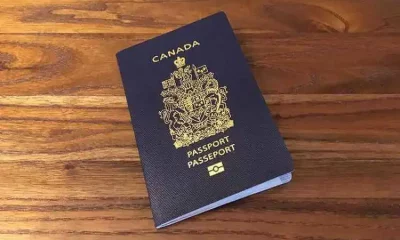Scholarships
How to Apply for Scholarships in Canada
Scholarships play a vital role in helping students fund their education and achieve their academic goals. In Canada, there are numerous scholarship opportunities available for both domestic and international students. However, navigating the scholarship application process can be daunting without proper guidance.
This comprehensive guide aims to provide you with a step-by-step approach to applying for scholarships in Canada, helping you maximize your chances of success.
Understanding Scholarships in Canada
Types of Scholarships
In Canada, scholarships come in various forms, catering to different criteria and objectives. These include:
- Merit-based scholarships: These scholarships are awarded based on academic excellence, recognizing students who have achieved outstanding grades.
- Need-based scholarships: Designed to assist students with financial limitations, these scholarships consider the applicant’s financial circumstances and aim to provide support to those in need.
- Field-specific scholarships: Some scholarships are tailored to specific fields of study or programs, encouraging students to pursue careers in high-demand areas or industries.
- Government-funded scholarships: The Canadian government offers scholarships and grants to both domestic and international students, supporting academic excellence and research initiatives.
- University-specific scholarships: Many universities in Canada have their own scholarship programs, providing financial aid to deserving students who choose to study at their institution.
- Private and corporate scholarships: Various private organizations, foundations, and corporations offer scholarships to students who meet specific criteria, such as academic achievements, extracurricular involvement, or community service.
Eligibility Criteria
Scholarship eligibility criteria in Canada vary depending on the specific scholarship. Common eligibility factors include:
1. Academic requirements: Most scholarships require a minimum GPA or specific academic achievements.
2. Financial need criteria: Some scholarships prioritize applicants who demonstrate financial need.
3. Citizenship and residency requirements: Certain scholarships are exclusively available to Canadian citizens or permanent residents, while others are open to international students.
4. Field of study or program-specific criteria: Scholarships may be limited to specific fields of study or programs, promoting education in areas of national or regional importance.
Researching Scholarship Opportunities
University Scholarships
Canadian universities offer a wide range of scholarship opportunities. To find relevant scholarships:
- Visit the websites of universities you are interested in attending and explore their scholarship pages.
- Check for scholarships based on your field of study, academic performance, or other specific criteria.
- Utilize scholarship search engines and online directories that compile information about scholarships available across Canadian universities.
- Consider contacting university financial aid offices directly for additional guidance and information.
Government Scholarships and Programs
The Canadian government provides various scholarship programs for both domestic and international students. To explore government-funded scholarships:
- Research scholarships offered by federal agencies, such as the Natural Sciences and Engineering Research Council (NSERC) or the Social Sciences and Humanities Research Council (SSHRC).
- Check provincial government websites for scholarship opportunities specific to each province.
- Explore programs like the Canada Graduate Scholarships program, which supports graduate students pursuing research-based programs.
Private and Corporate Scholarships
Private organizations and corporations also offer scholarships to students in Canada. To find these scholarships:
- Research scholarships offered by private foundations, community organizations, and professional associations related to your field of study.
- Check with large corporations and companies, as they often have scholarship programs aimed at supporting students pursuing certain disciplines or reflecting their corporate values.
- Consider reaching out to local community organizations or charitable foundations that may have scholarship opportunities available.
Preparing a Strong Scholarship Application
1. Gathering Required Documents
Before applying for scholarships, ensure you have the necessary documents. Commonly required documents include:
- Academic transcripts and certificates: Gather official transcripts of your academic records, including high school or college transcripts, and any relevant certificates.
- Letters of recommendation: Request letters of recommendation from teachers, professors, or employers who can attest to your academic abilities, character, and potential.
- Personal statement or essay: Craft a compelling personal statement or essay that highlights your achievements, aspirations, and why you deserve the scholarship.
- Proof of financial need: If the scholarship is based on financial need, prepare documentation, such as income statements, tax returns, or financial aid forms.
- Other supporting documents: Some scholarships may require additional documents, such as a resume, portfolio, or proof of extracurricular involvement.
2. Writing an Impressive Personal Statement
A strong personal statement is crucial for scholarship applications. Consider the following tips:
- Reflect on your experiences, goals, and motivations to craft a compelling narrative.
- Structure your personal statement with a clear introduction, body paragraphs that highlight your achievements and experiences, and a conclusion that reinforces your commitment to your field of study.
- Showcase your unique qualities, experiences, and skills that make you a deserving candidate.
- Demonstrate your passion, dedication, and potential impact in your chosen field.
3. Obtaining Strong Letters of Recommendation
Letters of recommendation can significantly influence scholarship decisions. Follow these steps:
- Select recommenders who know youwell and can speak to your academic abilities, character, and potential.
- Provide your recommenders with relevant information, such as your resume, personal statement, and any specific points you would like them to address.
- Give your recommenders ample time to write the letters and be sure to thank them for their assistance.
Completing the Application Process
Online Application Platforms
Many scholarship applications are submitted online. Follow these steps:
- Identify the scholarship application platforms commonly used in Canada, such as the institution’s online portal or external platforms like ScholarshipsCanada or Yconic.
- Create an account on the relevant platforms and provide the necessary information.
- Fill out the application form accurately and completely, ensuring that you meet all the requirements and attach the required documents.
- Review your application before submission to avoid any errors or missing information.
Application Deadlines and Timeline
Meeting scholarship application deadlines is crucial. Consider the following:
- Note the application deadlines for each scholarship you plan to apply for and create a timeline to ensure you complete all requirements on time.
- Start the application process well in advance to allow ample time for gathering documents, writing essays, and obtaining letters of recommendation.
- Avoid waiting until the last minute to submit your application to prevent technical issues or unforeseen delays.
Frequently Asked Questions (FAQ)
Q. Can international students apply for scholarships in Canada?
Yes, international students can apply for scholarships in Canada. Many scholarships are open to both domestic and international students, while others may have specific eligibility criteria for international applicants.
Q. Can I apply for multiple scholarships simultaneously?
Yes, you can apply for multiple scholarships simultaneously. In fact, it is encouraged to increase your chances of receiving financial aid. However, ensure that you carefully review and meet the eligibility criteria for each scholarship you apply to.
Q. How competitive is the scholarship application process?
The competition for scholarships in Canada can vary depending on factors such as the scholarship’s prestige, the number of applicants, and the available funding. Some scholarships may be highly competitive, while others may have more favorable odds. It is essential to research and apply to a variety of scholarships to maximize your chances of success.
Q. What are the common mistakes to avoid when applying for scholarships?
Common mistakes to avoid when applying for scholarships include:
- Missing application deadlines
- Failing to meet eligibility criteria
- Submitting incomplete or inaccurate application forms
- Neglecting to proofread essays or personal statements
- Not providing all required supporting documents
Q. Are there scholarships available for graduate students?
Yes, there are scholarships specifically designed for graduate students in Canada. Universities, government agencies, and private organizations offer scholarships to support graduate-level studies and research.
Conclusion
Applying for scholarships in Canada can be an overwhelming process, but with careful planning, research, and preparation, you can increase your chances of securing financial aid. Remember to explore various scholarship opportunities, gather all necessary documents, craft a compelling personal statement, and submit your applications on time.
Persistence and determination are key in the scholarship application journey, so start researching and applying for scholarships today to make your educational dreams a reality.

















